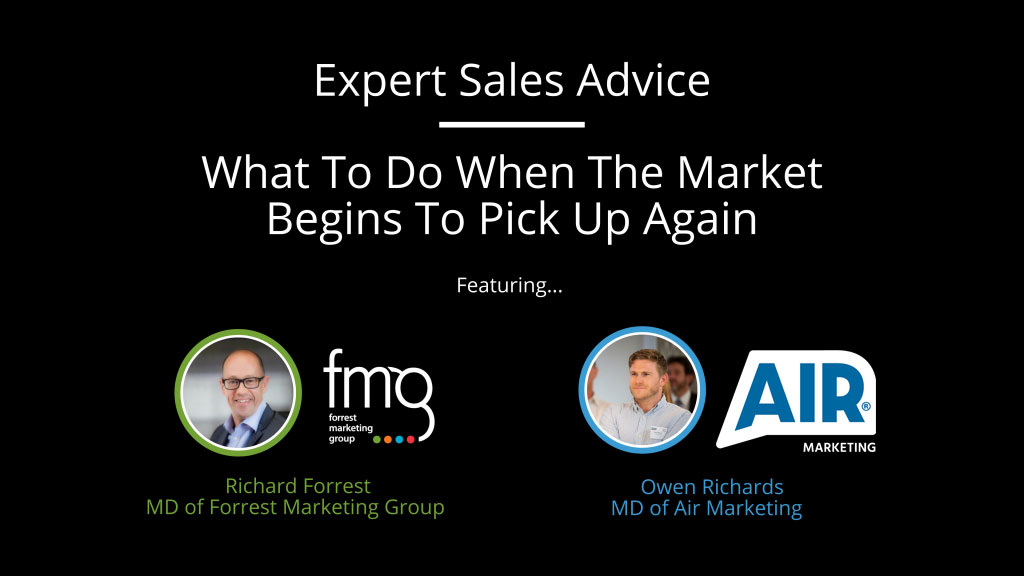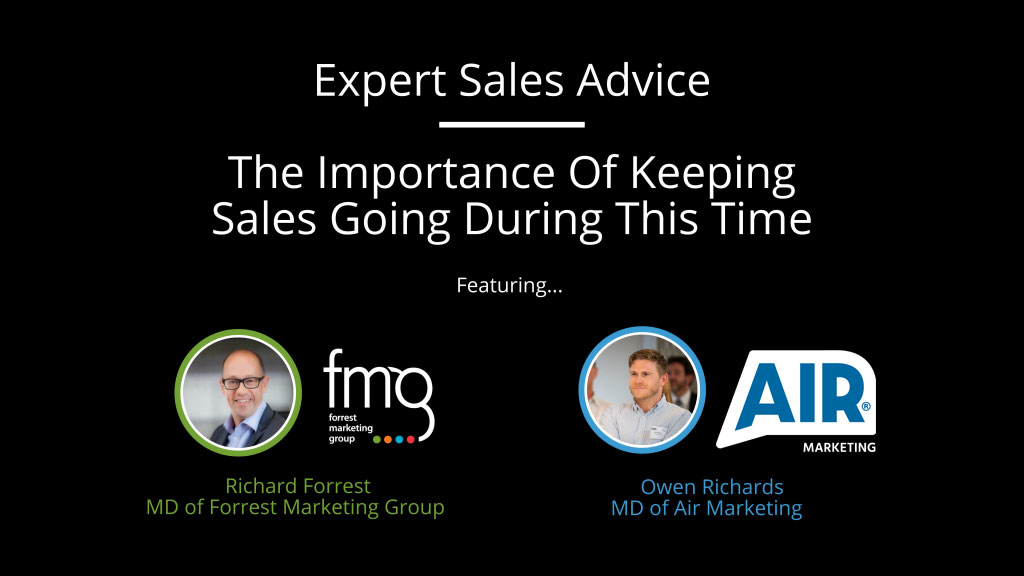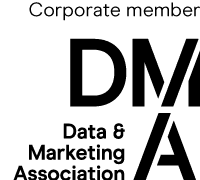A car cannot be expected to run on the wrong fuel, drive endless miles without rest, never have an MOT and expect it to keep performing to the best of its ability – our bodies and minds are exactly the same. The unhealthy feelings of pressure, anxiety and stress wear us down and can cause us to become demotivated. Simply put – when we’re not feeling our best, we don’t perform at our best, and this is heightened during times of difficulty and uncertainty.
For sales professionals, while they may be known on the front line for their big personalities, confidence and ambition, more often than not there are underlying challenges that they face on a daily basis that are impacting their health and wellbeing.
What makes the challenges of sales professionals unique?
There are many of challenging jobs in the world – doctors, healthcare professionals, teachers, lawyers, the forces, the list goes on… but there’s something unique about the role of a sales professional. Outside of the careers of those saving lives, the sheer quantity of challenges that sales professionals are up against everyday is second to none.
- High expectations: Sales professionals are no stranger to targets. Not only does this impact their performance and therefore financial reward (commission), but also their company’s bottom line. There’s no doubt in that they’re expected to be consistent in bringing in X amount of revenue every quarter. As the saying goes, you’re only ever as good as your last month or quarter.
- Lack of routine: For a lot of sales professionals, in order to meet expectations, the 9-5, Monday to Friday routine is non-existent. Acting as a brand ambassador, being available for events and networking opportunities and being flexible to prospects doesn’t always allow for ‘office hours’.
- Managing potential rejection: It’s inevitable. Even the greatest sales leaders experience knockdowns and knockbacks from prospects who may not be ready to purchase just yet, or the product/service simply isn’t right for them.
- Finding qualified leads: To avoid the possibility of rejection and potentially wasted time, it’s important to ensure that leads are qualified within the sales team (sales qualified leads – SQLs) or marketing team (marketing qualified leads – MQLs). But finding these takes time and effort so it’s a careful balancing act of spending time on this vs acting speaking to prospects.
- Long sales cycle: It’s unusual for things to ‘just happen’ overnight. Building relationships and trust as well as the case for why the client should be interested takes time, consistency and commitment. Remaining empathic and patient when under pressure is a tricky skill to master.
- Unpredictable markets: It’s difficult to predict when a market is going to be impacted, whether that’s from an economic downturn or a global pandemic like COVID-19 (Coronavirus). While this drives uncertainty through the supply chain, it’s important for sales professionals to remain calm and support prospects through what is likely to be an even longer than usual sales cycle.
- Competitors: Standing apart from competition is a challenge for many sales professionals, especially when they’re competing against low cost providers. Having a strong relationship to make a ‘needs’ based sale rather than a ‘costs’ based sale is important here.
- Maintaining a relationship with marketing: Ultimately working towards the same goal, it’s vital to set aside time to work with the marketing department to maximise opportunities and make sure that you’re singing from the same hymn book.
- Building a personal brand: We’ve reached 2020 and there’s now more pressure than ever to be active and building your personal brand and network on professional networking sites such as LinkedIn. This is key to becoming a trusted advisor.
Why is this important for businesses?
In the workplace, health and wellbeing allows for sustainability of top-level performance. It’s important for sales professionals to keep motivated and believe in themselves. At the end of the day, your sales team generate revenue, and without revenue, there is no business. Should businesses be effectively making a positive impact on the health and wellbeing of their sales team, they’re likely to see a decrease in absenteeism and costs, as well as an increase in motivation, performance and employee retention.
As an increasing number of sales professionals are beginning to prioritise their health and wellbeing, there’s no better time for businesses to take a step back and review wellbeing policies. When looking for their next employer, will sales professionals be on the look-out for organisational cultures that champion employee health and wellbeing? We think so!
How can you help?
Conversation: In an office environment you would usually see visual cues or hear audio cues of people seeming unhappy or a bit low, and that might come across in the work that they’re doing and the sales conversations they’re having. Outside of the usual office environment, if sales professionals are working from home, you still have a number of cues and it’s just as important to still be looking for them. If you think someone’s not looking too good, just ask. If your team communicates together socially, then they will start to pick up on this as well. If you don’t have that conversation, then it’s more difficult to tell if people are struggling.
Normalisation: Good health and wellbeing is proactive. Leaders should be starting the conversation and driving it through the organisation to create a culture where talking about physical and mental wellbeing, how you feel and what’s going on in your mind is normal.
Trust: Management should lead by example and build trust by opening up about how they’re feeling and what they’re doing to keep their body and mind healthy. A lot of people will be having good days, but there will also be a lot of people who are having down days too. Be honest about how and why this is impacting your motivation. Showing vulnerability as a leader and being honest with your sales team will allow them to open up.
Initiatives: Support conversation, normalisation and trust by implementing initiatives to keep sales teams engaged and motivated. Help sales professionals build a routine whereby they’re able to get away and switch off. Do a team Joe Wicks workout or yoga class. Bring out the natural competitiveness of your sales team with a step or running challenge. Organise access to a 24/7 mental health support line. You would even go so far as to remove sales targets which are seen as unrealistic for the greater good of your sales team.
Tools to succeed: Drill back down to the basics and review whether your sales team have all of the tools that they truly need to succeed and hit their targets – regular training and skill sharing activities, a strong sales process, effective scripts, clear KPI’s and a way of repeatedly filling their pipeline with qualified leads. If lead generation is something that your team don’t have time for, we recommend outsourcing. Find out more about outsourcing lead generation with Air Marketing here. For marketing qualified leads (MQLs) we recommend our sister company, demand generation experts – Roots to Market.
Sales leaders and management – if you’re not investing in your sales team’s health and wellbeing, you’re missing an opportunity. With so many knockdowns and knock backs in the sales environment, being supported emotionally, physically and being resilient is incredibly important. It’s down to you to nurture this. Don’t just drive your team on numbers and targets but support them to be in the best shape possible so they can perform at their best for you.
If you’d like to hear more about how we at Air Marketing prioritise a culture of health and wellbeing for our sales team, get in touch today or call us on 0345 241 3038.











